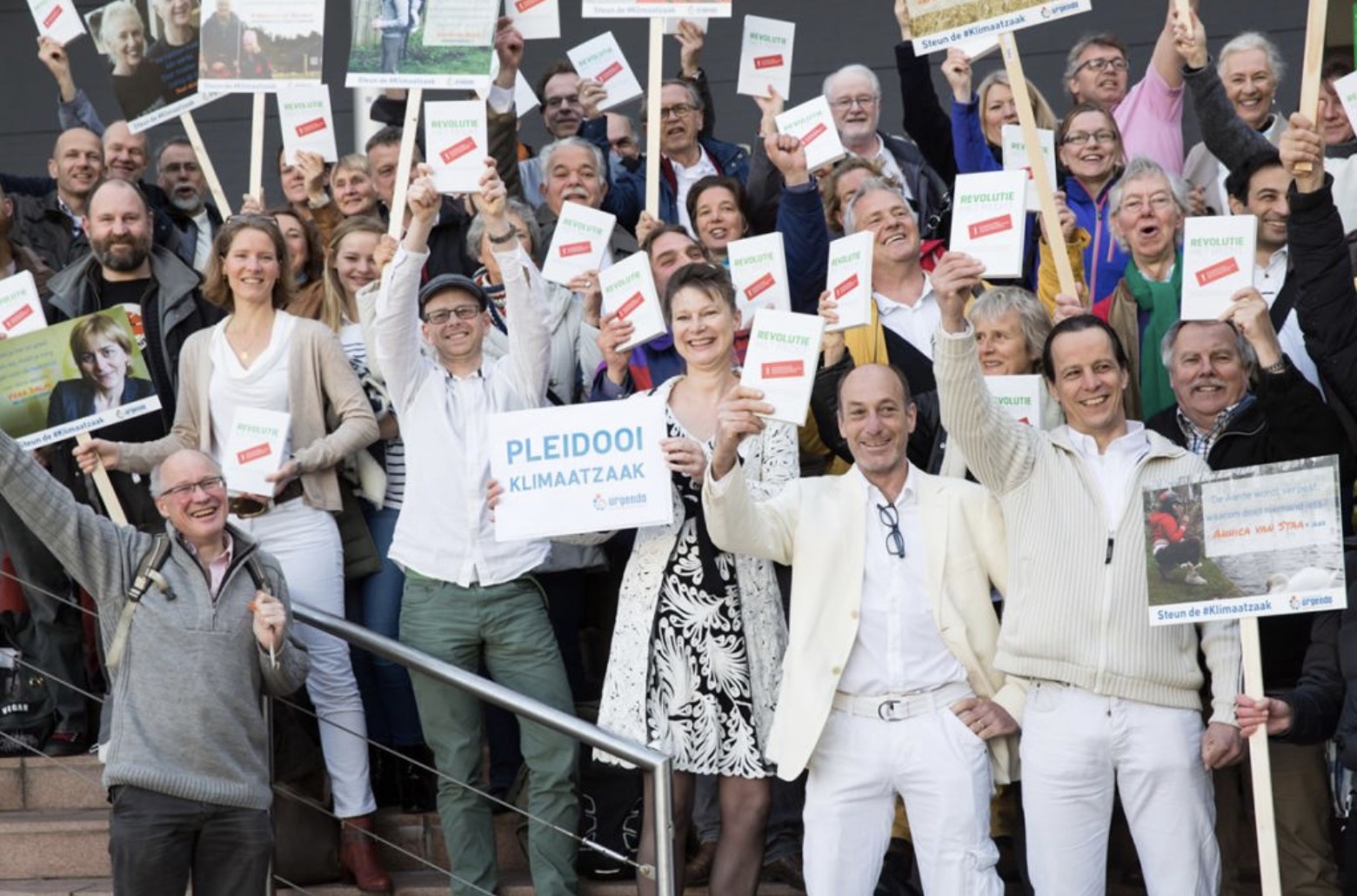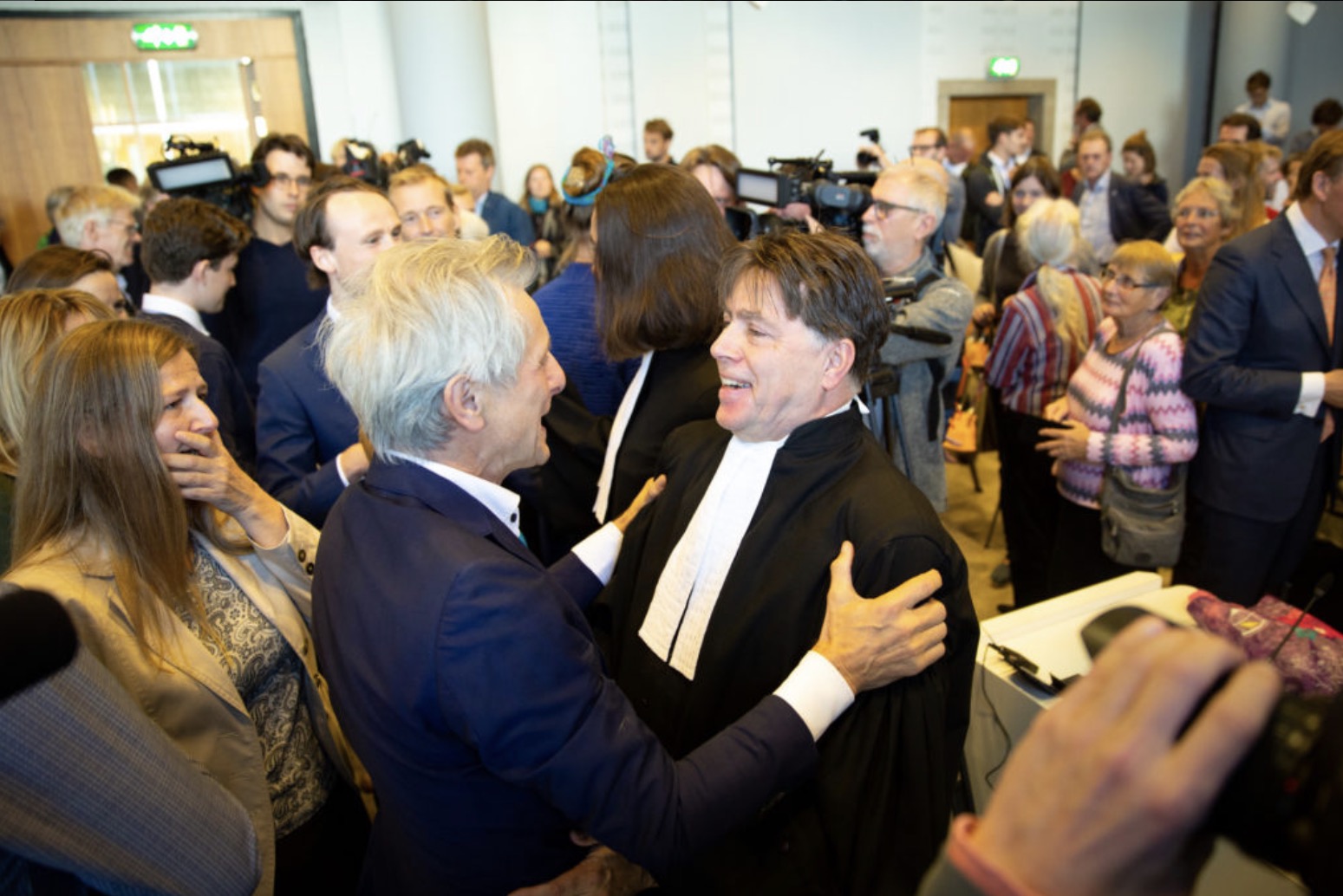
- Sustainable Planet -
- 5mins -
- 468 views
Dutch Supreme Court ruling: protection against climate change is a human right
Netherlands’ Supreme Court upholds landmark ruling in Urgenda v. the Netherlands, announcing its decision that governments have a human rights duty to protect their citizens from climate change — the first case in the world in which a national court issued a specific order to reduce greenhouse gas emissions to a government on the basis of human rights.
Historic outcome in landmark case brought by concerned citizens and organisations
On 20 December 2019, the Dutch Supreme Court, the highest court in the Netherlands, upheld the previous decisions in the Urgenda Climate Case—which was originally brought on behalf of 886 concerned Dutch citizens—finding that the Dutch government has obligations to urgently and significantly reduce emissions in line with its human rights obligations, in what is truly a historic outcome.

World first: citizens establish their government has legal duty to prevent climate change
The Urgenda Climate Case against the Dutch Government was the first in the world in which citizens established that their government has a legal duty to prevent dangerous climate change.
On 24 June 2015, the District Court of The Hague ruled the government must cut its greenhouse gas emissions by at least 25% by the end of 2020 (compared to 1990 levels). The ruling required the government to immediately take more effective action on climate change.
The District Court’s decision was appealed by the State and upheld by the Court of Appeal on 9 October 2018. Following this judgment, the State appealed to the Supreme Court. The Supreme Court ruled in favour of Urgenda on 20 December 2019.
You can read Urgenda’s press release here, the press release of the Supreme Court here and an explanation of the case by the press Justice to the Supreme Court here.
In a reflection of the international significance of the case, the UN High Commissioner for Human Rights has also published a news release about the decision in which she notes that “the decision confirms that the Government of the Netherlands and, by implication, other governments have binding legal obligations, based on international human rights law, to undertake strong reductions in emissions of greenhouse gases.”
For more information on the case click here.
Source: Urgenda.nl

Final decision: government must reduce emissions immediately
The Urgenda Climate Case, which was brought on behalf of 886 Dutch citizens, made climate change a major political and social issue in the Netherlands and transformed domestic climate change policy.
It inspired climate change cases in Belgium, Canada, Colombia, Ireland, Germany, France, New Zealand, Norway, the UK, Switzerland and against the EU.*
*For more information on climate cases around the world click here.
The Government decided to appeal even though it committed to taking steps to meet the target set by the Court.
Following the ground-breaking judgment of the District Court on 24 June 2015, the Dutch Government decided to appeal the case in September 2015, despite calls from leading scientists, lawyers, citizens, companies and the 886 co-plaintiffs for it to accept the decision.
The appeal was heard at the Hague Court of Appeal on 28 May 2018. On 9 October 2018, the Hague Court of Appeal decided to uphold the 2015 court decision. In other words, Urgenda won again.
On 8 January 2019 the government filled its grounds of appeal to the Supreme Court. Urgenda filed its written defence to the Supreme Court on 12 April 2019 and a subsequent rejoinder on 21 June 2019. The case was heard at the Supreme Court on 24 May 2019. English translations of those documents can be found here.
On 13 September 2019 the Procurator General and Advocate General to the Supreme Court published an opinion advising the Supreme Court to uphold the judgment of the Court of Appeal. The press release of the Supreme Court regarding the opinion can be found here and an English translation of the opinion here.
The final decision of the Supreme Court was delivered at a public hearing on Friday 20 December 2019 and states that the Dutch government must reduce emissions immediately in line with its human rights obligations.
Source: Urgenda.nl
Urgenda’s success is expected to have a positive impact on other pending suits
Carroll Muffett, president of the Center for International Environmental Law (CIEL), described the judgment as “really outstanding”. — as reported in Climate Liability News.
“Having followed this case along its trajectory, it began not only with a well-argued case from Urgenda but a really carefully thought out decision from the original district court. The more thoroughly these issues are analysed the more inescapable the conclusions have become; that every state has a fundamental human rights obligation to address the threat of climate change and to address it now, not in the future.”
Muffett said the judgment is consistent with the findings of other enquiries, including the recent one by the Philippines Commission on Human Rights. “The court interpreted the European Convention of Human Rights but what it was basically interpreting was the right to life, property and livelihood. And the court found implicitly in those the right to a livable environment and a climate that can sustain life.”
Urgenda’s success is expected to have a positive impact on other pending suits, including a case brought by a group of Dutch environmental groups earlier this year against Royal Dutch Shell. The case is represented by Roger Cox, the same lawyer who initially represented Urgenda.
They argue that Shell’s business model poses a threat to the climate goals of the Paris Agreement. In a formal reply in November, Shell denied that it was liable.
Nine de Pater, climate and energy researcher and campaigner at Friends of the Earth Netherlands/Milieudefensie, which is leading the suit against Shell, said the Supreme Court’s Urgenda decision is important because both cases use a similar legal reasoning based on human rights obligations.
Muffett said the judgment may also affect a current case challenging the Norwegian government’s approval of offshore oil drilling,
“The truth is we now have a rising number of cases across European and round the world where these findings are going to be relevant,” Muffett said. “We are now in a place where the law is increasingly on their side.”
Source: ClimateLiabilityNews

